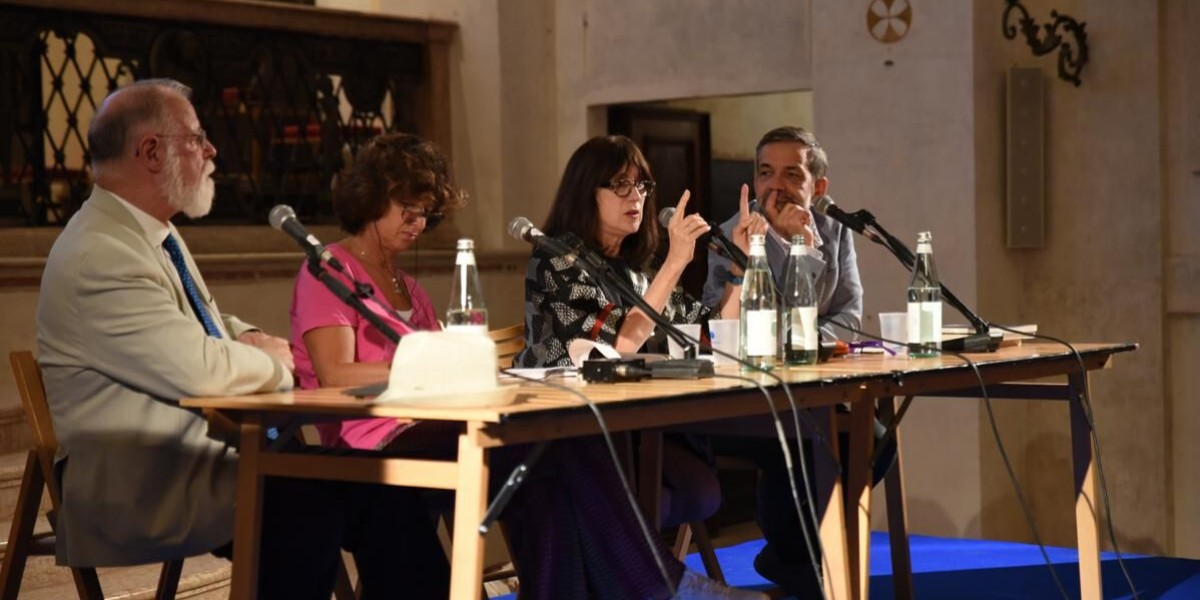
Maryanne Wolf and Alberto Manguel discuss how reading changes our brains
Our relationship with reading is changing. In the past, the written word was a way to discover and connect with the wider world. These days, other media such as internet and television also fulfil this role. Now that we understand more about what happens in the brain when we read, reading is more crucial than ever, argued tonight’s panel in Mantova.
Maryanne Wolf, an expert on literacy and the brain, and Alberto Manguel, who has written several books on reading, compared two different approaches: scientific and empirical.
Wolf explained that when we read, new neural circuits are created in our brain. Everyone’s reading brain is different: the circuits develop according to what we read and how we read it. The difference even shows up across cultures and languages. French and English affect the parts of the brain corresponding to sounds; Spanish and Italian less so. Reading Chinese or Japanese uses a different part of the brain entirely.
Through storytelling we can experience an event before living it, said Manguel, and as humans we are the only species capable of doing this. His definition of reading encompasses more than just text. As humans we read situations, we read our environment, and we connect that with what we already know. It is our imagination which allows us to go beyond, to make inferences, to empathise. Culture is part of that background, added Wolf. It’s part of the context which informs what we know.
When we read, our brain makes inferences and deductions to go beyond the facts we’re given. We can then form hypotheses to evaluate what is true and what is not. But, said Wolf, this requires time. Skimming, reading quickly – as when we read on a screen - doesn’t give our brain time for critical analysis, and this is the greatest danger of the digital era.



